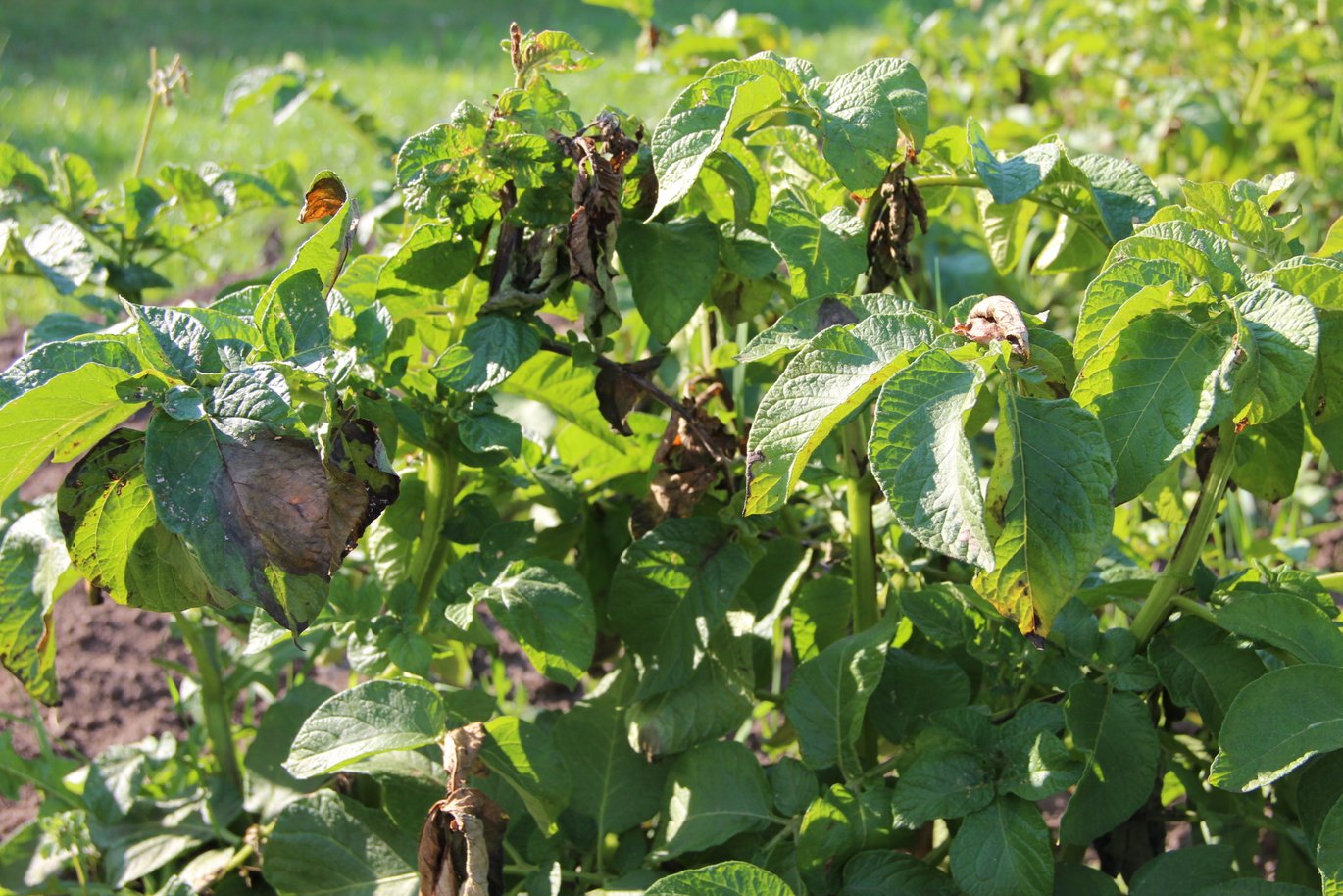A new variant of the late blight pathogen Phytophthora infestans is threatening the potato production
The results of a study on late blight show 100% resistance to one of the most important fungicides in potato production. Researchers find the development of the new variant of late blight worrying in relation to future control in Danish fields.

In August 2022, SEGES Innovation reported that late blight was difficult to control in farmers’ fields in some regions and the efficacy in some field experiments using only REVUS (active ingredient is mandipropamid) was lower than expected [Read more here]. The alarm was sounded. Firstly, because REVUS is a very important fungicide for preventing severe late blight disease attacks. Secondly, the number of available fungicides to control late blight is relatively low, and the possible loss of REVUS will increase the risk of evolution of resistance to the remaining fungicides.
Aarhus University has conducted research on late blight epidemiology and control for more than 25 years and Jens G. Hansen from the Department of Agroecology is one of the coordinators of EuroBlight – a Potato late blight network for Europe. Via this network, the evolution of new variants of the late blight pathogen has been monitored since 2007 in a European collaboration that includes research institution, extension services, the potato industry and the agrochemical industry.
“We have now identified the genotype resistant to mandipropamid. It is probably a variant of a previously known genotype named EU43. EU43 was first recognised at a low level in Denmark in 2018 and until 2021, the occurrence of this genotype has increased gradually up to 21% of the total population. But then it increased dramatically from 21% in 2021 to 45% in 2022. When we see such a rapid increase in frequency along with several reports of a reduced effect of REVUS, one should be suspicious. We decided to look into why this variant has an advantage compared to other types of the same pathogen” says Jens G. Hansen.
Aarhus University has been working closely together with the extension services and industry partners about sampling of isolates. In 2022, we sampled approximately 250 isolates, some only as DNA on FTA cards for genotyping and some as live samples for fungicide resistance testing. The live isolates were mainly sampled in farmers’ fields and field experiments were late blight was difficult to control and REVUS was used alone or as a part of a control strategy.
“Among the first 47 live isolates genotyped, 85% were of the genotype EU43. This was reported to the farming community on a workshop held on 8 December 2022 [Read more here]. We have subsequently tested five of these isolates for sensitivity against mandipropamid, and they were all 100% resistant” says Isaac K. Abuley. The five isolates were sampled from all important potato regions in Jutland. We are only half way through the analysis, so this is only a first glance of the total results.
Aarhus University has a strong collaboration with colleagues at the James Hutton Institute in Scotland. They do the genotyping of most isolates sampled from Europe via the EuroBlight network. In 2021, 2667 isolates were genotyped from 27 different countries. Until 2021, the EU43 variant was only found in Denmark but the EuroBlight network will follow the spread and evolution of this new variant in a European context. All genotyping results in 2022 will be published on the EuroBlight website in the near future, and partners from the EuroBlight network will work closely together to further analyse the phenotypic traits of live isolates as well as the implications for practice.
Additional information | |
| Read more | https://agro.au.dk/forskning/internationale-platforme/euroblight |
| Contact | Senior Advicer Jens G. Hansen, Department of Agroecology, Aarhus University: jensg.hansen@agro.au.dk or Postdoc Isaac K. Abuley, Department of Agroecology, Aarhus University: ikabuley@agro.au.dk |
